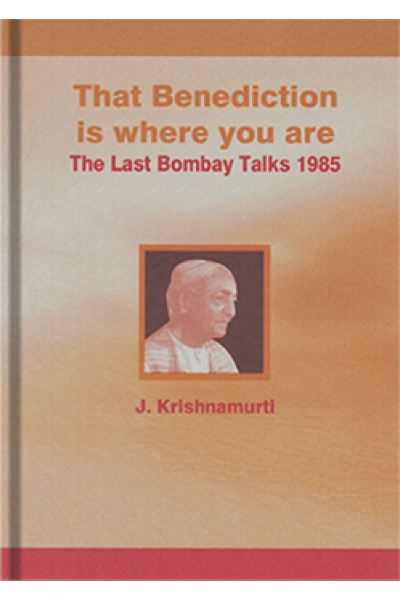SPECIAL ESSAY
In this rhythmic piece the author has reflected on his engagement with the two gifted spiritual masters of our times.
Avijit Pathak is a Professor of Sociology at JNU, New Delhi.
[dropcap]I[/dropcap] visit Rishikesh quite often. No, it is not for joining a meditation camp or learning yoga. It is also not for performing any religious ritual. As a matter of fact, Rishikesh fascinates me. I love its vibrancy–the constant flow of people, or the monkeys at Laxman Jhoola looking at the pilgrims with curiosity and irritation. I love the cosmopolitanism of the place. Its river talks to me; and the distant mountains give me a call. Moreover, I roam around the book shops, buy books, come to The German Bakery – one of my favorite sites, drink cups of coffee, and read the books that I buy from a nearby book shop. The blue sky observes me; the river becomes an intimate companion; the mysticism of the mountains surrounds my existence; and I enter a different world…

Love heals, fear destroys
The intention of deep listening and loving speech is to restore communication, because once communication is restored everything is possible, including peace and reconciliation.
– Thich Nhat Hanh, Calming the Fearful Mind
The river flows quietly. And I know it listens. I can cry; I can express my anguish; I can complain. Yet, the river would not misunderstand me; it absorbs everything. And possibly this act of communion with the river would make me calm, and heal my wound. However, as I see the world around me, I experience the absence of empathy, understanding and listening. There is pain as suicide bombers kill themselves, and kill others.There is anger or revenge when the state uses its army, destroys the ‘enemy camps’ and seeks to ‘eradicate’ terrorism through violence – supposedly more ‘legitimate’, more ‘organized’ and more ‘democratic’. There is no understanding; there are only walls of separation causing a toxic environment of doubt and suspicion. Are we then caught into the trap caused by,say, the might of the USA and the tyranny of the likes of Osama bin Laden?

I ask this question; and Thich Nhat Hanh’s ‘Zen response to terrorism’ begins to make sense to me. ‘Fear’, the monk tells me, ‘is the root of violence and terrorism’. Possibly, ‘we terrorize others so that they will have no chance to terrorize us’. Indeed, fear makes us violent. And hatred is normalized if there is no acknowledgement of the living presence of our humanity. At this juncture, I find my river in the monk’s revealing book; I experience something profound and meaningful in his contemplative observation:
What would it take for us to be able to reach out to those who have terrorized us ,and say: “You must have suffered deeply. You must have a lot of hatred and anger toward us to have done such a thing to us. You have tried to destroy us and you’ve caused us so much suffering. What kind of misunderstanding has led you to take such an action?”
And this needs what the monk regards as ‘compassionate listening’. We ought to realize that ‘misunderstanding, fear, anger and hatred are roots of terrorism; and bombs and missiles cannot reach them.’For cultivating the art of listening, we need courage; we need ‘mindfulness’; and we need to return to ourselves, and ‘rediscover our calmness, our tranquility and lucidity’.No wonder, it is possible for Thich Nhat Hanh to say:
If I were given the opportunity to be face to face with Osama bin Laden, the first thing I would do is listen. I would try to understand why he had acted in that cruel way. I would try to understand all of the suffering that had led him to violence. It might not be easy to listen in that way, so I would have to remain calm and lucid. I would need several friends with me, who are strong in the practice of deep listening, listening without reacting, without judging and blaming. In this way, an atmosphere of support would be created for this person and those connected so that they could share completely and trust that they are really being heard.
Likewise, the Buddhist monk does not hesitate to say that the United States – a mighty power always eager to ‘eradicate’ the roots of terrorism through military invasion-needs to look at itself. US citizens, we should not forget, consume sixty percent of the world’s energy resources when they account for only six percent of the world’s total population. Thich Nhat Hanh does not forget to remind us that ‘children in America have witnessed 100,000 acts of violence on television by the time they finish elementary school.’ Furthermore, what is absent in the foreign policy of the US is the ‘lack of deep listening’; seldom does it understand ‘the suffering and the real needs of people in other nations.’ In a way, as we can infer, this gross asymmetry of wealth and power causes anger – a ground for fear, misunderstanding and violence. Is it possible for the US to listen?
Yes, we need to appreciate the healing power of the ‘loving speech’. And we must find paths of communication so that we can listen to those who are desperately calling out for our understanding–because ‘such an act of violence is a desperate call for attention and for help’.
I keep looking at the river. And Thich Nhat Hanh absorbs me. Violence is all-pervading. Violence and counter-violence; suicide bombers and carpet bombing; terrorist upsurge and military conquest-we seem to be caught into this politics of revenge and hatred. Right now at Rishikesh as I find Thich Naht Hanh, I find some hope, a possibility, a lamp of truth. I do not measure its utility; I do not see it through the eyes of a diplomat, a strategist, a military General. I submit, and allow myself to experience its truth. I begin to sing his song:
The only thing worthy of you is compassion-
invincible, limitless, unconditional.
Hatred will never let you face
the beast in man.
One day, when you face this beast alone,
with your courage intact, your eyes kind,
untroubled
(even as no one sees them),
out of your smile
will bloom a flower.
And those who love you
will behold you
across ten thousand worlds of birth and dying.
Living is dying
Earning money, going to the office from nine to five, over-worked either in a laboratory or in an office or in a factory, and the endless conflict, fear, anxiety, loneliness, despair, depression -this whole way of existence is what we call life, living.
– Jiddu Krishnamurti, That Benediction is where you are
Here at Rishikesh good books seem to have possessed me. I have ordered yet another cup of coffee. And this time the lectures Jiddu Krishnamurti delivered in Bombay in 1985 arouse my interest. As a student of education, I have read his works. I have often contemplated on his quest–the quest for a ‘pathless land’, his reminder that the conditioned mind with memories and thoughts refuses to live in the moment and experience its totality. He makes me look at our conditioning, our attachment to power, fame, money, desire and stability, and the resultant fear. We live with fear. Fear is everywhere – fear of losing the property we hold so intensely, fear of failure, and abve all, fear of death. Let me quote him:
Are you not afraid? If you are really honest, for a change, will you not say,”I am afraid’? Afraid of death. Afraid of losing a job. Afraid of your wife or husband. Afraid of public opinion. Afraid of not being recognized by your guru as a great disciple. Afraid of the dark. Afraid of so many things.

This fear has destroyed relationships. Sorrow is implicit in our self-interest, in our egotistic activity. I listen to him carefully. I read this passage repeatedly:
When you realize that you are the entire humanity – that is what love is. Then you will not kill another, you will not harm another . You will move out of all aggression, violence, and the brutality of all religions.
Furthermore, the fear emanating from division has done another damage. We have ‘separated living from dying’. We are frightened. We refuse to come to terms with death.
I am attached to the house I am living in. I have bought it, I have paid a great deal of money for it, and I am attached to all the furniture, the pictures, the family, the memories. And death comes and wipes all that out. So can I live every day of my life with death?
This attachment, or this refusal to accept the beauty of ‘ending’ has made our lives ’empty, shallow, violent, brutal, inconsiderate, thoughtless.’ A life worth-living means that every day we wipe out everything we have collected, and die at the end of the day. Indeed, living, says Krishnamurti, is dying. This means freedom from fear, freedom from conditioning. Love begins to flow like a river – without fear, without possession, without insecurity. This is the true ‘religious life’.
And there is the benediction of all that. Not in temples, not in churches, not in mosques.That benediction is where you are.
[irp posts=”6239″ name=”The River Watching the Play of Pain, Longing and Celebration”]
This is the time to end, to leave The German Bakery. I see the amazing sunset. I come near the river. With my meditative self I close my eyes. Yet, I see Thich Nhat Hanh and Jiddu Krishnamurti walking with me…














